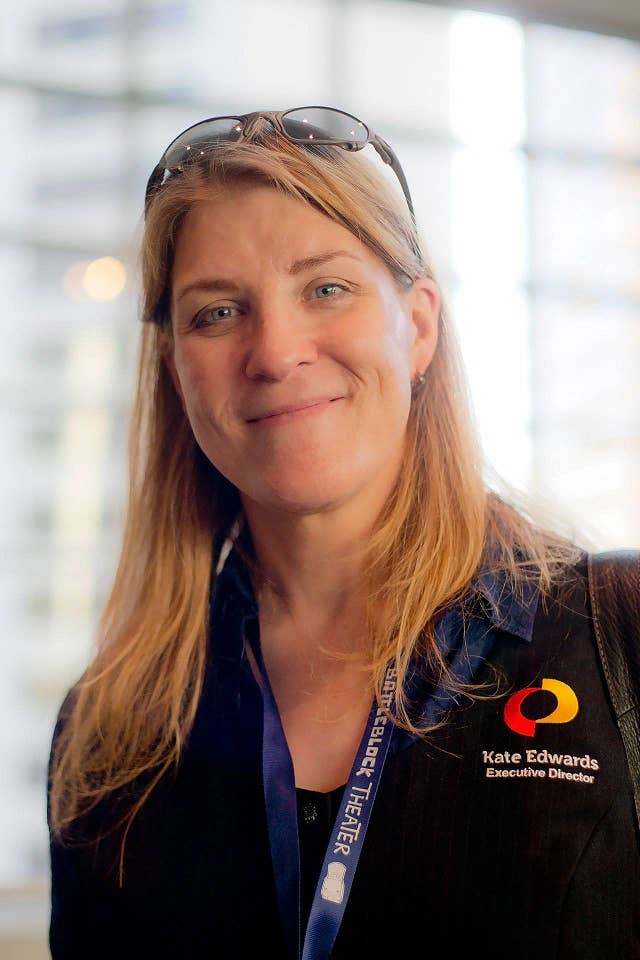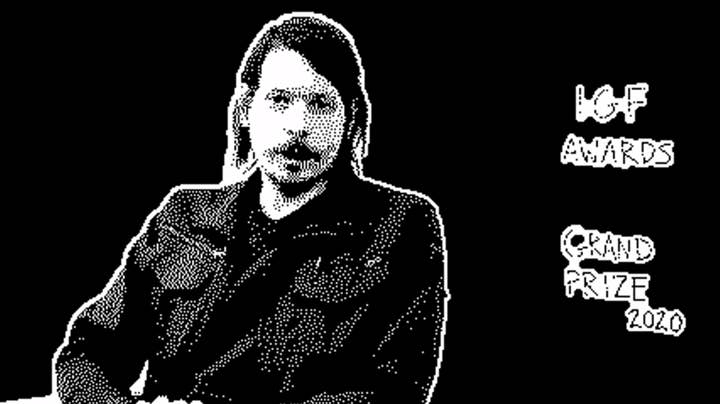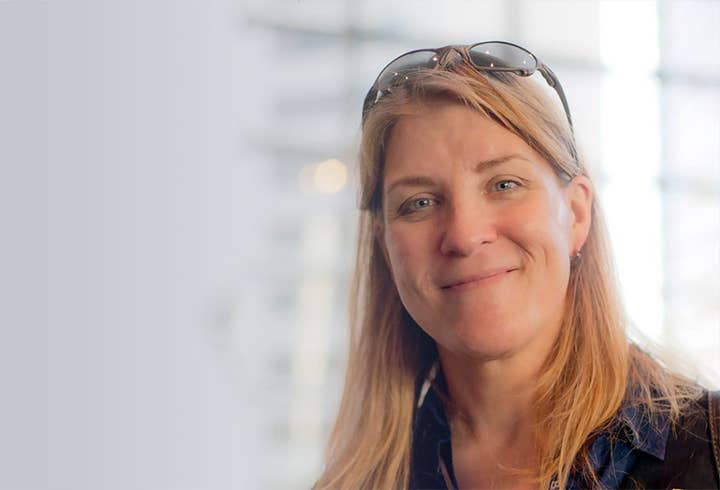Coming up with a Plan B for GDC
Kate Edwards shares lessons and reflections on the industry's responses to COVID-19, and where things go from here
It feels a million years since GDC announced it would postpone its annual conference in San Francisco, but somehow it hasn't quite been a month.
When that announcement first went out, says Geogrify founder Kate Edwards, a good number of people were still planning to go to San Francisco despite there being no centralized event to congregate around. Flights are expensive and, it seemed at the time, non-refundable. So were hotels. Many developers save all year, or for several years, for the chance to show up and network at the conference.
Edwards and a number of other industry supporters sprang into action assembling the Plan B Project, a small alternative conference that was originally planned to be in-person in San Francisco. As Edwards describes it, it was meant to be a "responsible gathering of a small number of people" to help offset the pain of small developers in particular who would otherwise be out thousands of dollars with nothing to show for it.
"There are a lot of people who don't have the luxury of saying, 'I'm going to cancel this $3,000 chunk of travel that I waited two or three years to pay for'"
Almost 90 people submitted ideas for panels, roundtables and lectures. Some would still have to be remote, but many were planned in-person. Some were talks intended for GDC proper, others were talks that had been given before that could be used again. California had limited gatherings to 100 people, and Plan B had plans to keep the venue at or below the limit. For a moment, it seemed things would be, if not ideal, then at least beneficial for those stuck making the trip to California anyway.
But of all the industry events of the year, GDC and its subsequent alternative offspring sat at a critical tipping point of COVID-19 prevention measures and spread. The situation in the US and around the world escalated rapidly, San Francisco went into lockdown, and at the last minute Plan B was moved to a digital-only event, albeit with a venue in the city for those who wanted to deliver their virtual talk live. A few still did.
"The whole plan all along was to provide some kind of value to people who were going to be there in San Francisco anyway," Edwards says. "I think in the end we were pretty happy about that. We achieved our goal, even though we had to switch to virtual, which in a way was great because then it actually provided value to people who are not in San Francisco as well.

"The thing that was frustrating is getting pushback from certain colleagues about it because they didn't really understand what we were trying to do. We weren't trying to throw an event just for the sake of throwing an event. It was always about making sure that those few people who are still gonna be in San Francisco, especially those who really stretched the resources to be there, that they had some kind of option."
Though she acknowledges the situation has been a difficult one for everyone to adjust to, Edwards urges the industry to practice empathy toward organizers, leaders, and workers as they adapt to the changes. She says her own experience with Plan B was a stark example of some of the disparities in expectations people have about responses to COVID-19.
"There are a lot of people in our industry, at least in my opinion, who have been speaking with a lot of privilege over the last couple of weeks. Like, 'Everyone should work from home, you need to work from home'. Yeah, but not everybody can. When you pop up in your apps to order food, people have to be at their workplace making the food for you, and they need to deliver the food to you, while you sit in your nice little home office working because you can.
"There are a lot of people who don't have the luxury of just saying, 'Well, I'm just going to cancel this $3,000 chunk of travel that I waited two or three years to pay for, including using my own government's money'. And because now if they can't show any kind of value for using that money, they may not get that kind of grant ever again. I think trying to be a little more empathetic is important in these situations."

Edwards' concerns touch issues that are brought up every year by developers on social media and at GDC itself: it can be expensive and inaccessible to travel to San Francisco for a show that's often critical to getting a game pitched, supported, or seen. And yet GDC also switched its talks to a digital format and made them free to access to everyone -- proving that such a move to bring in people from the industry not necessarily present in the city is both possible and welcome.
"There are a lot of people in our industry, at least in my opinion, who have been speaking with a lot of privilege"
I ask Edwards if she thinks the push for accessible digital content from events like GDC will continue post-coronavirus.
"Yeah, I think so," she says. "This whole virus episode is going to do a lot of resetting. Though while this is coming out of my mouth, my cynicism is also just bubbling up. I will say I hope that we collectively can kind of stand back and look at the effects of our behavior, like working from home. We're working from home because we're all doing it for the greater good. But what if we continue with that kind of behavior?
"I think it really is helping to prove the case for Rami [Ismail]'s Game Dev World. It's proving that kind of concept has a tremendous amount of validity. And I think we need to explore that a lot more, especially at conferences like GDC. Maybe there's kind of that altruistic component of it, for the greater good of the industry, that they can actually make the content free or make it accessible in a really easy way for those who can't attend. Especially if it's streamed live. That, to me, is one of the bigger things that would be interesting to explore.
"We're working from home because we're all doing it for the greater good. But what if we continue with that kind of behavior?"
"With Plan B, we set up streaming pretty easily, and we were able to integrate live speakers on-site, remote speakers, and pre-recorded talks. And we did it very quickly, and it really wasn't that difficult to do. So I think, hopefully, we're gonna stand back and look at this and ask, 'What does it mean to hold an event these days?'"
Of course, event cancellations are just one sector of the games industry that is and will be dramatically impacted by COVID-19. Most major industry companies are now working from home for the foreseeable future, the impact on upcoming hardware and software launches are still unknown, retail stores are closing indefinitely, and there are countless associated human impacts of both job loss and the virus itself.
With all that in mind, Edwards concludes by advising people to take care of the physical health of themselves and others by following CDC guidelines, while also taking care of their own personal mental health, especially in the face of a deluge of bad news and long periods of isolation.
"There are a ton of people who are going through really severe adjustments right now," she says. "And I empathize with them, because I know it's not easy. They're used to being in an office environment, or they're used to socializing much more than they are now. And fortunately, I see a lot of people using tools like Zoom and Google Hangouts to do daily chats with friends and others just to make sure they feel connected.
"People need to do what they need to do to maintain their mental wellness during this, because we're dealing with levels of stress that most people I think don't really normally deal with, on top of the normal stress of work. I'm hoping people will also take that into account as they're going about their business and see those expressions of frustration.
"I'm glad that there are a lot of people who are watching out for one another in our industry and trying to be nurturing. And I'm really proud to be on the board of Take This and to be associated with Safe in Our World. Both organizations have released resources to help people with dealing with media and anxiety and all those kinds of things. So I think it's really important to kind of keep pushing out those resources during this time."

